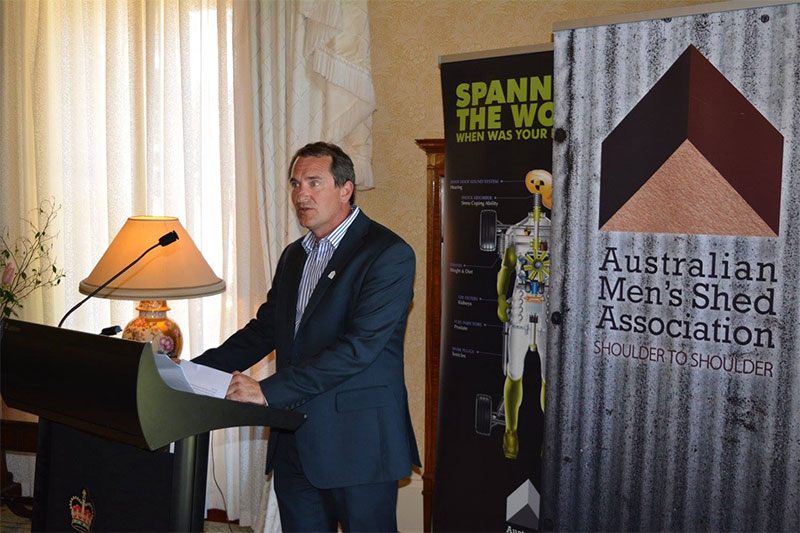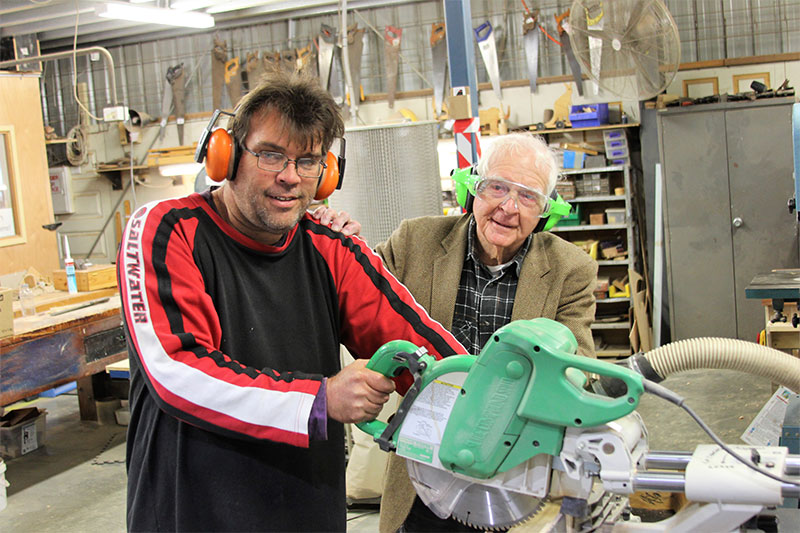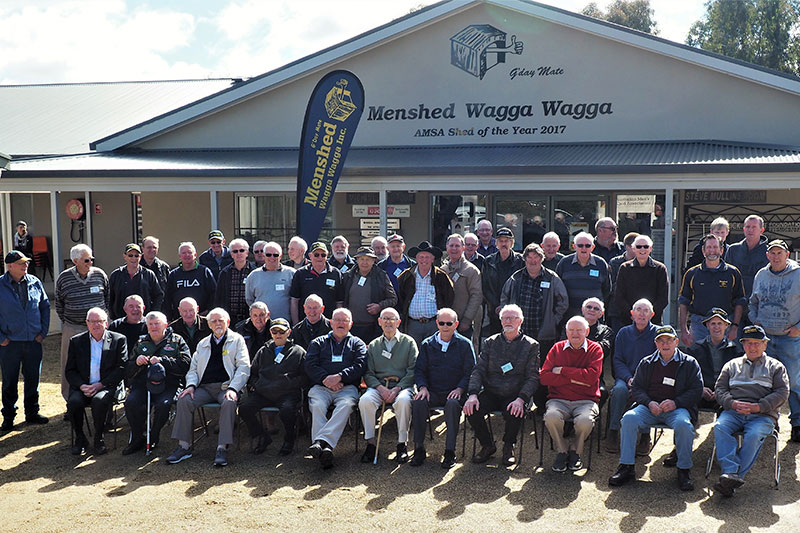Loneliness is a prevalent problem amongst older men in Australia – one that the Australian Men’s Shed Association is trying to combat through its nationwide network of over 1000 ‘sheds’ that provide support and companionship. Co-founder David Helmers tells us his story.
In Australia, the significance of the backyard shed is almost folklore. In a country where tinkering around with tools, escaping the house for a quick breather, or just spending some quiet time alone is seen in many corners as a sacred right, the shed is a symbol of refuge where men are free to unwind and indulge in their hobbies at leisure. In a spin on this age-old concept, men’s sheds are being created in an innovative take on solving growing problems in men’s mental health. Providing a communal space where older men can gather to build social connections and alongside the framework of sharing craftworking skills, the Australian Men’s Shed Association (AMSA) is starting conversations across the country that could save lives. Co-founder David Helmers talked us through the brilliant simplicity of his concept.

Officially inaugurated in 2007, the AMSA now boasts of over 1000 sheds around the country and 125,000 members, embodying the motto, “Men don’t talk face-to-face; they talk shoulder-to-shoulder.” David puts in this way: “If you tried to get 20 men, put a facilitator or counsellor in the room, and said, ‘Guys, let’s talk,’ that’s going to go down like a proverbial limp balloon. But if you get the same 20 men, put them in a room, give them a broken lawnmower to fix and leave and come back in a couple of hours, the few things I can guarantee is that they will have formed friendships, and they’ll be openly talking about a lot of their lives and personal issues. And the third factor in the equation I can guarantee is that the lawnmower still won’t work, because it was totally irrelevant in the first place. It’s just all about creating the environment.”
You might also like One Man’s Journey: Changing How We Talk About Men’s Mental Health

Although David has been a crucial asset to AMSA since its inception, it was not a career path he envisioned himself taking. “I was a pastry cook for seventeen years in my early life. I got to work with my father every day and I did that for many years, but it was very much the same thing, at the same time, day after day,” he explains. “I remember one day saying to myself, I want to do something that makes a difference in the world.” His family business was sold in 2002. By then, in his mid-30s, David longed for a change of pace. After a period of unemployment, he was hired as a coordinator for the Windale Men’s Shed by CatholicCare in Newcastle, New South Wales in 2006, and it was during his time there that he co-founded AMSA, eventually leaving in 2010 to work on it full-time. “I’d founded the association with Ted Donnelly and did a lot of the background work at Windale. It was just a natural progression that I head up the association as a standalone entity,” he explains. “Everything happens for a reason, and I’ve always been very appreciative of being in the right place at the right time. It found me; I didn’t find it.”
The main aim of AMSA is to combat the issue of loneliness amongst older men, which has been linked to poor physical and mental health and even premature death, and it’s an issue that David feels a connection to. “I spent a long time unemployed, which was a very depressing period as there was no sense of any meaningful purpose in life. I used to walk about seven or eight kilometres a day on the beach, and I’d see all these other blokes walking around in groups and they were always very happy. I thought, ‘Why?’ I was very much a lonely person at that stage. I did not have the social interaction of these other groups of blokes. I was doing it on my own and it was kind of a trigger point. As humans, we are creatures that want to socially engage.”

Now, David works full-time to ensure that older men have a platform through which they are able to connect with each other socially and speak openly about mental and physical problems. “What we are doing is the prevention of social isolation, primarily in men over the age of 55 and no longer in full-time employment,” he says. “When people retire, they have these thoughts like, ‘I was once good at something and now I’m not good at anything’ because they haven’t got that sense of contributing to the world anymore. So, through the Men’s Shed, which engages within the community, they very proudly have that sense of worth again.”
Having worked for AMSA for 16 years, David has helped to develop a platform where men can not only come to find companionship, but also to seek medical advice. “Our aim is to prevent health issues from actually evolving in the first place,” he explains. “Men don’t go to the doctor until the symptoms are critical, chronic and untreatable. They don’t take a preventative approach.” In order to combat this phenomenon, AMSA developed the Spanner in the Works programme where medical professionals visit men’s sheds around Australia and give talks on men’s health as well as conduct health screenings. AMSA also acts as an information hub and communicates health-related information to older men in rural and regional Australia – a difficult demographic to reach. “We’re providing a platform for men to connect, but we also provide a platform for the distribution of other health-related information.”

Aside from physical health, AMSA also places a focus on mental health, aiming to highlight the connection between social isolation and depression. “We have to look at the causes,” explains David. “We’ve prevented a lot of the problems with social isolation in our domain by taking a preventative approach, but we’re only scratching the surface. Men’s Shed as a project isn’t going to solve the problem. But the principles of what we’re trying to do, if they can be adopted by other organisations and society in general, they can change the way people think and behave – to have an attitude of looking at preventing things from happening in the first place.”
David’s journey at AMSA has taken him on a voyage of discovery that’s positively impacted not only the lives of men across his country but also in himself. “My whole perception of life, the world, the universe, and everything else has changed along the way. I’ve been privileged enough to have been in a position to contribute through this movement that has changed people’s lives. And sometimes I think about that and it knocks me on my back a little bit.” The movement shows no sign of slowing down, having recently reached a pinnacle with sheds operating in 12 different countries around the world. “I would never have imagined that I would have been around the world multiple times and that there’d be nearly 4000 sheds operating,” he admits. Still, his biggest hope is that one day the movement might become a victim of its own success. “One of the biggest things we’re doing is making changes and raising awareness. I’ll look at 20-something men now and they do talk to each other. What I hope for is that, in another 20, 30, 40 years, there won’t be the need for a men’s shed. If we can come to that, if we put ourselves out of business, then we’ve done a great job.”
Related Articles
The Man Behind Movember: Founder Travis Garone on Authenticity, Naivety & Passion
Female Fitness Warrior Talks Strength, Resilience & Career After Battling Cancer





